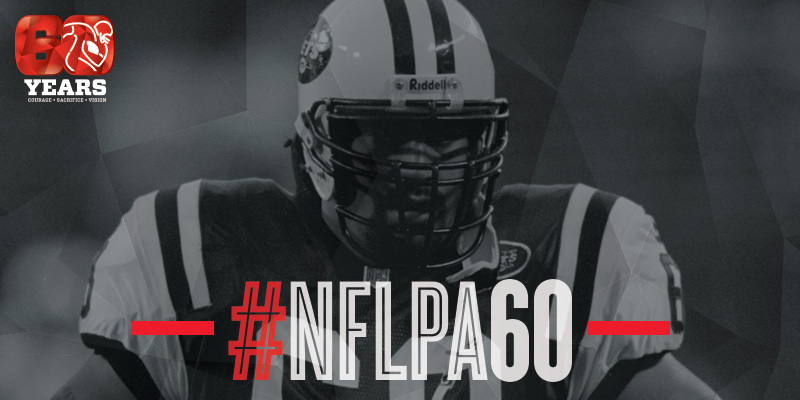60 Heroes: Kevin Mawae Leads Players in Turbulent Times

As NFLPA President from 2008 until 2012, Kevin Mawae led players and their union through the sudden passing of their fearless leader Gene Upshaw, the 2011 NFL lockout and the CBA negotiations that followed.
Shortly after Gene Upshaw’s passing, the NFL gave notice to end the long-standing 1993 CBA after the 2010 season. Mawae, along with other NFLPA leaders, prepped players for an apparent lockout while selecting a new Executive Director.
As a Player Rep and Executive Committee member during his career, Mawae was a strong voice on many issues. Having benefited from free agency by signing with the Jets as an unrestricted free agent in 1998, he was a strong proponent of players taking advantage of the system.
Mawae was an active member of the NFLPA Committee on Agent Regulation and Discipline while serving as an Executive Committee member. The All-Pro center was also an outspoken supporter of significant reforms in player working conditions, including the reduction of offseason training activities and two-a-day practices, which many players believed had shortened their careers. After the terrorist attacks on September 11, 2001, Mawae led the Player Reps’ successful efforts to have the next weekend’s games postponed out of respect for the victims and concern for teams traveling during this time.
Among Mawae’s many accomplishments, perhaps his most important contribution to the NFLPA was his invaluable leadership during the five-month lockout in 2011. Despite his retirement as a player the previous year, he was present for nearly all of the negotiating sessions that occurred prior to the expiration of the previous CBA in early March of 2011. He also provided strong support for the renunciation of bargaining rights by the NFLPA once that agreement expired, which allowed the NFLPA to legally challenge the lockout as an antitrust violation and eventually helped the NFLPA achieve a final settlement to end the lockout in late July of 2011.
That settlement reflected many of the changes in offseason workout rules and other working conditions that Mawae had long advocated and was a testament to the leadership on those issues that he had displayed throughout his tenure with the NFLPA.